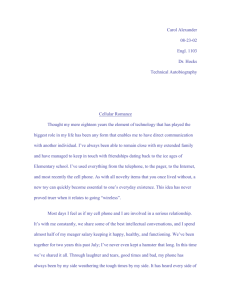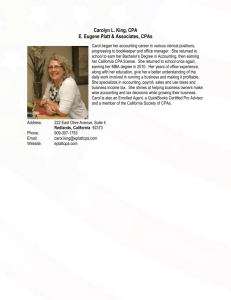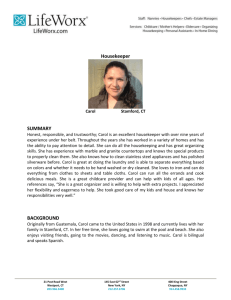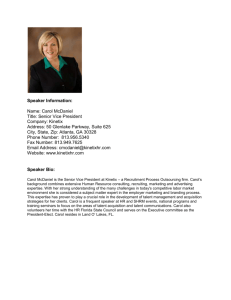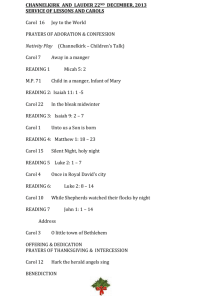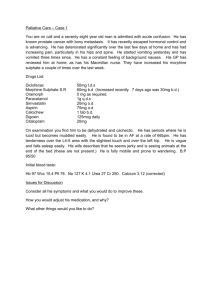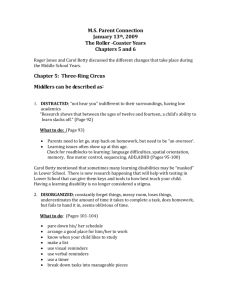oleana paper.doc
advertisement
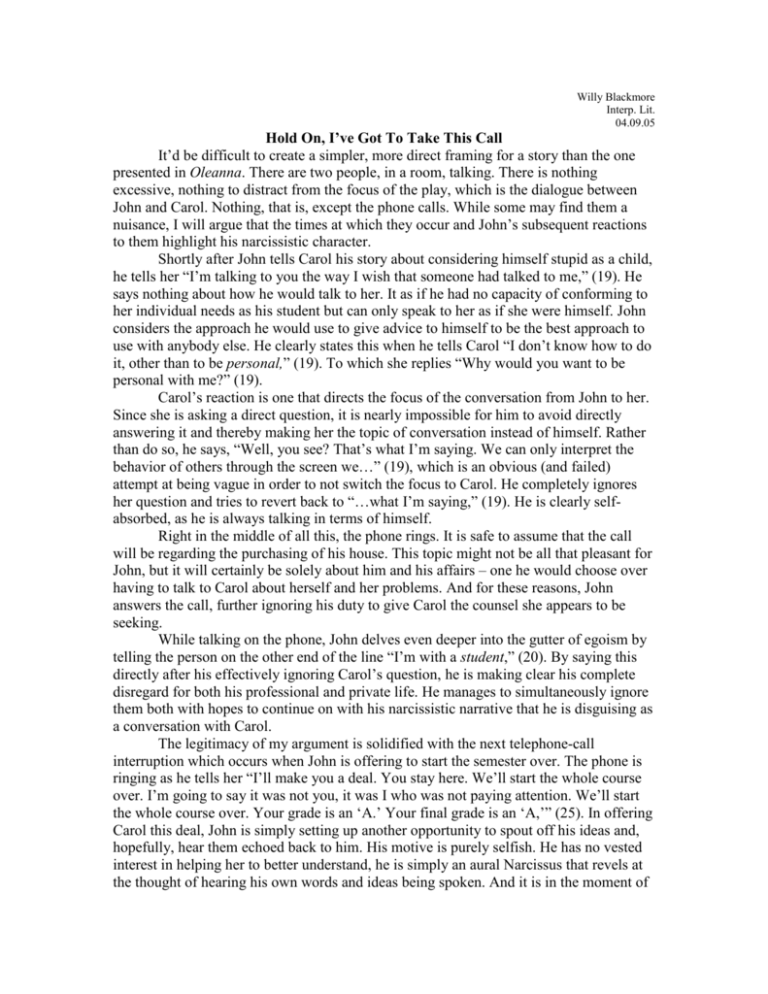
Willy Blackmore Interp. Lit. 04.09.05 Hold On, I’ve Got To Take This Call It’d be difficult to create a simpler, more direct framing for a story than the one presented in Oleanna. There are two people, in a room, talking. There is nothing excessive, nothing to distract from the focus of the play, which is the dialogue between John and Carol. Nothing, that is, except the phone calls. While some may find them a nuisance, I will argue that the times at which they occur and John’s subsequent reactions to them highlight his narcissistic character. Shortly after John tells Carol his story about considering himself stupid as a child, he tells her “I’m talking to you the way I wish that someone had talked to me,” (19). He says nothing about how he would talk to her. It as if he had no capacity of conforming to her individual needs as his student but can only speak to her as if she were himself. John considers the approach he would use to give advice to himself to be the best approach to use with anybody else. He clearly states this when he tells Carol “I don’t know how to do it, other than to be personal,” (19). To which she replies “Why would you want to be personal with me?” (19). Carol’s reaction is one that directs the focus of the conversation from John to her. Since she is asking a direct question, it is nearly impossible for him to avoid directly answering it and thereby making her the topic of conversation instead of himself. Rather than do so, he says, “Well, you see? That’s what I’m saying. We can only interpret the behavior of others through the screen we…” (19), which is an obvious (and failed) attempt at being vague in order to not switch the focus to Carol. He completely ignores her question and tries to revert back to “…what I’m saying,” (19). He is clearly selfabsorbed, as he is always talking in terms of himself. Right in the middle of all this, the phone rings. It is safe to assume that the call will be regarding the purchasing of his house. This topic might not be all that pleasant for John, but it will certainly be solely about him and his affairs – one he would choose over having to talk to Carol about herself and her problems. And for these reasons, John answers the call, further ignoring his duty to give Carol the counsel she appears to be seeking. While talking on the phone, John delves even deeper into the gutter of egoism by telling the person on the other end of the line “I’m with a student,” (20). By saying this directly after his effectively ignoring Carol’s question, he is making clear his complete disregard for both his professional and private life. He manages to simultaneously ignore them both with hopes to continue on with his narcissistic narrative that he is disguising as a conversation with Carol. The legitimacy of my argument is solidified with the next telephone-call interruption which occurs when John is offering to start the semester over. The phone is ringing as he tells her “I’ll make you a deal. You stay here. We’ll start the whole course over. I’m going to say it was not you, it was I who was not paying attention. We’ll start the whole course over. Your grade is an ‘A.’ Your final grade is an ‘A,’” (25). In offering Carol this deal, John is simply setting up another opportunity to spout off his ideas and, hopefully, hear them echoed back to him. His motive is purely selfish. He has no vested interest in helping her to better understand, he is simply an aural Narcissus that revels at the thought of hearing his own words and ideas being spoken. And it is in the moment of abject selfishness that he does not bother to pick up the phone; directly ignoring his family duties, subversively ignoring Carol and doing everything he can to keep talking as to continue to hear the echo of his own words.
